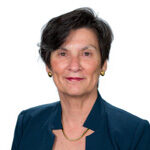Project Investigators

Felichism Kabo, Principal Investigator
Felichism Kabo is an Assistant Research Scientist at the Survey Research Center (SRC), Institute for Social Research (ISR). He obtained his professional architecture degree and Ph.D. from the University of Michigan. His primary research interest is in how physical and social contexts shape outcomes at the individual, interpersonal, and contextual levels. He addresses these issues through advanced social science analytical approaches including sociospatial network science.
This entails synthesizing and analyzing complex datasets covering individual- (e.g. race, gender, cognitive functioning, etc.) and contextual-level factors (e.g. social networks, amenities, services, etc.). Dr. Kabo is currently an investigator in ongoing research projects funded by the National Institute on Aging, the National Center for Advancing Translational Sciences, and the Kauffman Foundation. These studies are related to two streams of work on: 1) entrepreneurship, collaboration and innovation; and 2) aging, dementia, and health disparities. He is the principal investigator for the Boomers, Entrepreneurship, and Retirement 2030 project funded by the Kauffman Foundation. This project investigates the predictors of entrepreneurship and entrepreneurial outcomes in the Baby Boomer demographic group. The main goals of the project are to advance our understanding of entrepreneurship in older Americans, and more specifically to develop tools that can help us identify how entrepreneurship is transforming work and retirement in Boomers as they age.

Toni C. Antonucci, Co-Investigator
Toni C. Antonucci is the Elizabeth M. Douvan Collegiate Professor of Psychology, Program Director and Research Professor in the Life Course Development Program at the Institute for Social Research and Associate Vice President for Research, all at the University of Michigan. Dr. Antonucci’s research focuses on social relations and health across the life span, including the family, life span and life course development, multigenerational relations, adult development and aging, and comparative studies of social relations and health in the United States, Europe, the Middle East and Japan.
She is particularly interested in how social relations optimize or jeopardize an individual’s ability to face life’s challenges. She received a Research Career Development Award and is currently funded or has been funded by the National Institute of Mental Health, the National Institute on Aging and several private foundations, most recently, the Fetzer Institute and the MacArthur Foundation.
She was President of the Gerontological Society of America and the Society for the Study of Human Development and served as editor of the Journal of Gerontology: Psychological Science and Associate Editor of Developmental Psychology. She is currently series editor of the Annual Review of Geriatrics and Gerontology for Springer Publishing Company and is a member of the MacArthur Network on the Aging Society. She is a member of the Executive Board of the International Society for the Study of Behavioral Development, Secretary General-Elect of the International Association of Gerontology and Geriatrics and received the Gerontological Society of America’s 2011 Distinguished Career Contribution to Gerontology Award. She has numerous scientific publications, in 2010 she edited (with James S. Jackson) Life Course Perspectives on Late Life Health Inequalities and in 2011 edited (with Karen Fingerman, Cynthia Berg and Jacqui Smith) the Handbook of Life Span Development.

Philippa Clarke, Co-Investigator
Philippa Clarke is interested in understanding how the design of our outdoor built environments (e.g., sidewalk quality, curb cuts, and pedestrian crossings) promotes or hinders mobility, particularly among older adults or those with physical/cognitive impairments, who may find urban environments more challenging to navigate. Using wearable technology, her research team collects hundreds of thousands of data points (e.g. step length, stride time, and other step-based metrics) in real time from individuals walking in real-world outdoor environments.
She works with a highly interdisciplinary team of colleagues from social science, architecture and urban planning (Robert Adams), nursing (Nancy Ambrose Gallagher), geriatrics (Neil Alexander), and industrial engineering (Clive D’Souza), who are all interested in understanding inclusive design for successful aging, optimal mobility and physical activity.

Lindsay Ryan, Co-Investigator
Lindsay Ryan is an Assistant Research Scientist at the University of Michigan’s Institute for Social Research. She received her Ph.D. in 2008 from the Pennsylvania State University in Human Development and Family Studies. Dr. Ryan is an investigator on several ongoing research projects, all of which involve an interest in better measuring and understanding the processes by which adults change over the life course. Her research interests include investigating individual and contextual influences on well-being, physical health, and cognition across adulthood. In particular, Dr. Ryan is interested in the ways in which work experiences and the retirement transition impact health and well-being into late life.
The Boomers, Entrepreneurship, and Retirement 2030 research program has received funding from the Ewing Marion Kauffman Foundation. The program has also received institutional funding from the University of Michigan Office of Research.

